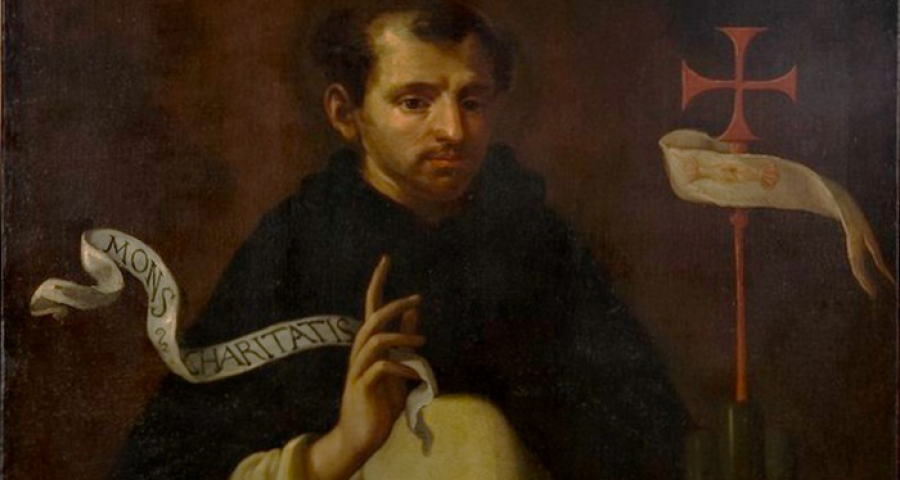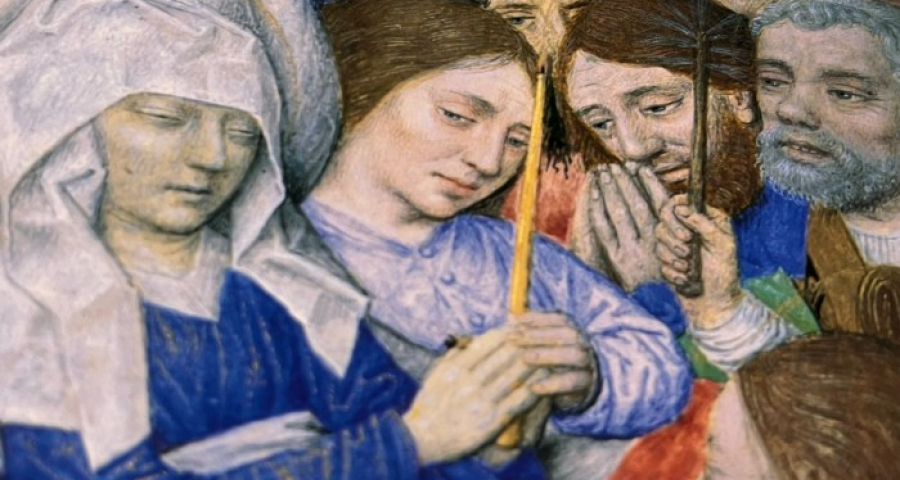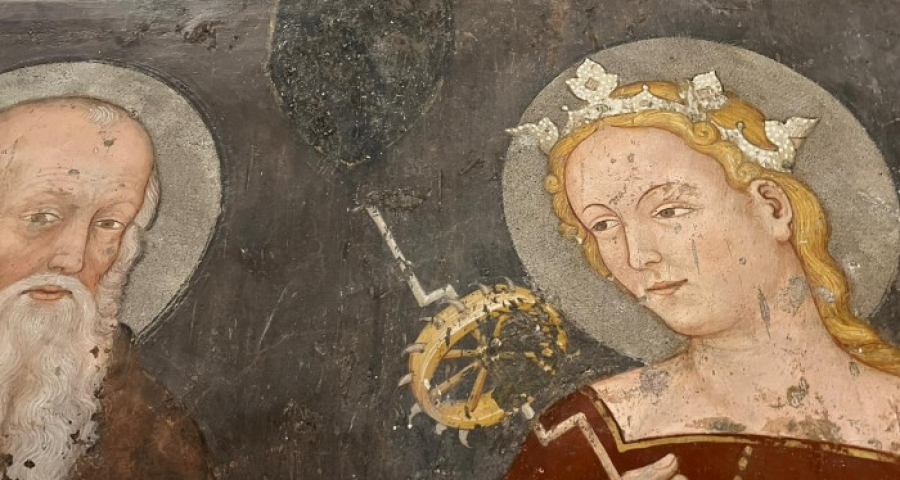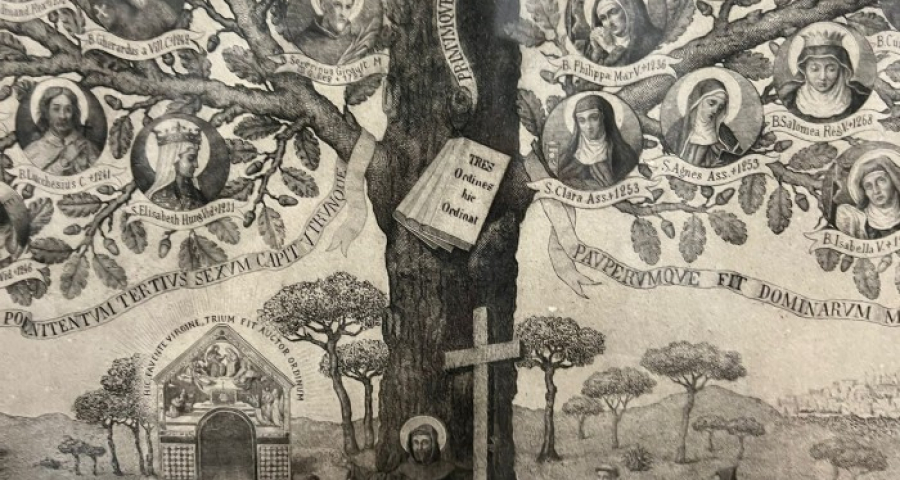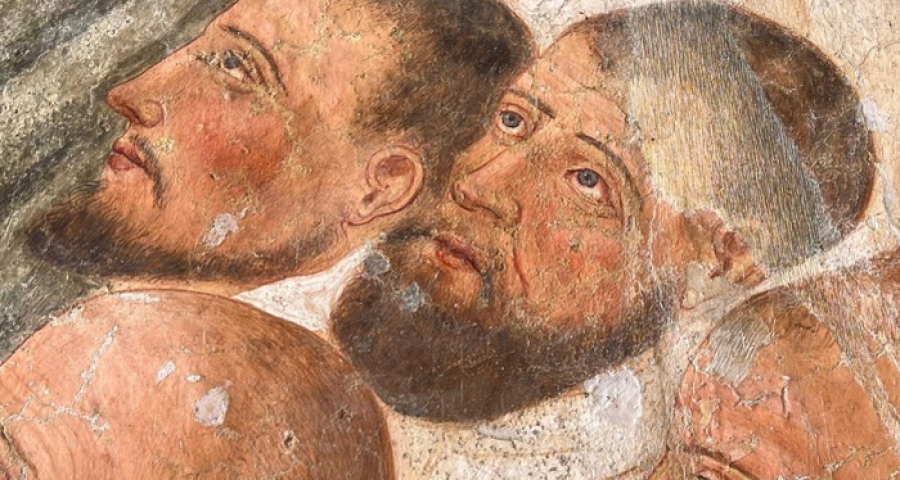The land of We/4 - The limits of the mutual advantage of the market, the new atmosphere in the age of Muratori
by Luigino Bruni
published in Avvenire on 14/10/2023
The birth of modern Political Economy is closely linked to the affirmation of a new idea about the Common Good. Ancient and medieval thought gave rise to it from the willing and conscious renunciation of the private good of individuals. In the eighteenth century, however, people began to say that the common good is the (unintentional) result of the pursuit of one's own interests, without the need for any renunciation. No one in the market loses anything, everyone gains. This is the heart of the discourse hidden behind the metaphor of Adam Smith's "invisible hand", introduced a few years earlier by the Neapolitan Ferdinando Galiani (Della Moneta, 1750) and already present, in essence, also in the other great Neapolitan, Giambattista Vico. A revolution well expressed by Smith: "I have never known much good done by those who affected to trade for the public good" (The Wealth of Nations, 1776).
Neapolitan and Italian Civil Economy thought differently about this and continue to do so: while recognizing the mutual advantage mechanisms of the market as the golden law of economic and social life, it never thought that only the mutual advantage of the invisible hand was sufficient for the common good. They knew the mutual advantage but did not make it the only social or economic language for the civilisation of peoples. Antonio Ludovico Muratori (1672, Vignola - 1750, Modena), an immense figure, had very clear ideas about this. In those years, after the seventeenth century, which was also the golden century of the Counter-Reformation and the Inquisition (which, among other things, Muratori also covered), a reform movement began in Europe. In the ecclesial sphere, first the election of Benedict XIII (in 1724), who we have already mentioned in previous articles because of his great action for the Grain Banks, and then, after the brief parenthesis of Clement XII, of Benedict XIV (in 1740), marked a real season of social and economic renewal as well. Benedict XIV, in addition to writing the encyclical Vix pervenit (1745) on the legitimization of interest-bearing lending, was an economic reformer, and carried out an agrarian reform to reintroduce the biblical institution of "gleaning" for poor farmers.
The Muratorian age was a season of greater tolerance for new and divergent ideas, a climate that favoured the emergence of great social intellectuals that the seventeenth century had not generated; the Catholic talents of that century tended towards the least "dangerous" areas of art, music and poetry. Muratori was an impressive and gigantic intellectual figure. He made fundamental contributions to historical studies, including 27 volumes of the Rerum Italicarum Scriptores, 6 volumes of the Antiquitates Italicae Medii Aevi, 12 volumes of the Annals of Italy. He was the teacher of the young Antonio Genovesi, he wrote important economic pages both in La carità cristiana (1723) and in Cristianesimo Felice (1743) where he described and praised the socio-economic experiment of the Jesuit "reductions" in Paraguay. The year before his death he published a summary of his thought in Della publica felicità, a book whose title, for at least a century, represented the motto of the research project of Italian economists and has now been revived. Among the many topics touched and renewed by Muratori, two are very important: the theological work to reform economic-civilian life and the coexistence of the idea of mutual advantage and that of gift.
After almost two centuries of the Counter-Reformation, Muratori understood that without a profound reform of "devotion" (devotion) and popular piety, which in those centuries was intertwined with magic and superstition, Catholic society would have remained definitively blocked. And therefore the priest Muratori criticized the devotions to save devotion: "Books of devotion and piety abound in the Catholic Church, authors who propose some new devotion and divonzioncelle (little devotions) every day", (Della regolata devozione dei cristiani, Preface, 1747). His criticisms provoked many harsh reactions, accusations of Protestantism and Jansenism, a fate common to true reformers.
The main reason for his religious criticism is very important: "We must clearly understand a very important truth: God commands us nothing that is not for our own good, that is, to love and seek our happiness even in our present life" (p. 5). Because, he explains, the whole of Revelation is oriented to our happiness: "God wants us to resist the breaths of disordered lust, anger, gluttony, revenge, and other similar vigorous passions: is this not for our benefit?" (p. 17) In a Church entirely centred on the souls of purgatory, on the valley of tears, on penances, on pain and on the theology of atonement, Muratori’s work shines out as a hymn to life and the person, as a Humanism, where God is man’s first ally for his happiness. It is an entirely biblical and evangelical vision. The God-human relationship should be read as mutual benefit and reciprocity: His good is ours, ours is His. Beautiful. From this humanism comes his criticism of the cult of the saints and Our Lady, and he even goes so far as to say something revolutionary: that the devotion of the saints "is not necessary and essential to the Christian" (p. 205).
The economic reason for his long battle for the reduction of too many holydays of obligation in the Catholic Church is also very important. On feast days, Christians could not work, so "the multiplicity of feasts clearly prejudices and burdens those who have to earn their bread with the arts and the toil of their hands" (p. 10). And he added: " The saints do not need our glory, and on the contrary the poor need bread, nor should it ever be thought that the saints, so full of charity, love the fact that to honour them unnecessarily the poor are defrauded of their necessary portion of food" (p. 211). Again the lack of mutual benefit. And he concluded masterfully: "Our devotion is for our profit" (p. 212). A few years later, his student Antonio Genovesi did not fail to approve this vision of Muratori on religion in his Lessons (chap. 10, IX, vol. 2). His most complex and long pastoral theological battle was that against the "bloody vow" (or the vow of the "Palermitans") that theologians, bishops and the Jesuits recommended for Christians. Those who took that vow had to defend the doctrine of the Immaculate Conception of the Virgin at the cost of their lives. Muratori judged this vow as superstitious and illicit. His battle began in 1714 with the book De ingeniorum moderatione (I7I4). The reason for his opposition lies, here too, in the lack of mutual advantage: even if the Immaculate Conception were certain (which Muratori did not consider certain but only probable), Mary does not obtain an advantage if Christians give their lives to defend a dogma: «Mary does not need dubious praise, nor an imprudent sacrifice. On the other hand, you need your life" (p. 269). Muratori therefore criticized a Church that saw human sacrifice as a currency to give glory to God. Hence his criticism of the excesses of the "Marian devotions", of the proliferation of the "Confraternities of the slaves of the Mother of God" (Regulata Divozione, p. 280). The only good devotions are those, as he said at the end of his book, "which return to the glory of religion and to the profit of the people" (p. 283). Alfonso Maria de’ Liguori, who respected Muratori, was a very harsh critic of his stigmatization of the "bloody vow": appealing to the authority of Angelico, he wrote: "It is still certain that such a cult can be a cause of martyrdom" (A. Maria de Liguori, Delle Glorie di Maria, ch. V, 1750).
Turning now to the second aspect of his thought, in his beautiful book Christian Charity, we also find the Monti di Pietà: «The industrious charity of the faithful then invented other kinds of Monti di Pietà. Such as the Sacred Bank of Flour, of which Blessed Jerome of Verona was the main instructor in Modena and in other cities". The Monte della Farina was a variant of the Grain Banks - there would be a lot to study about these ancient institutions! And then he continued: "The task of the directors of such Monti is to buy grain, of good quality, with the greatest possible advantage at convenient times and to do this with no less diligence than if it were their own business, to resell it, converted into flour, without any interest, to those people who are in need ... Too many people like that easy job of making their fortune by sucking the blood of the poor." And then he also told us that "a Hemp Bank was established in Bologna, an abundant city of Pious Works" (p. 315). With regard to the Monti di Pietà, he continued: "Monti Sacri de i Pegni (Pawnshops), founded in recent centuries by the piety of Christians, for the glory of Catholicism in Italy and Flanders" (p. 310). Those banks were truly a glory of "Catholicism", even in centuries which were ambivalent for the Catholic Church. It is important how Muratori explained the operation of these Monti, where those who lend money do so "with the intention of receiving back nothing more than the capital lent..., and to demand more would be to seek only our own interest and not the benefit of others" (p. 311). The only legitimate interest in the Banks of the Poor, is what is required “for the reimbursement of the expenses for the maintenance of the Officers" (p. 312). A Muratori, therefore, who is so fond of "mutual advantage" that he even puts it at the centre of his criticism of religion, but who recognizes that in some areas of economic and social life mutual advantage is too little, because there is a need to register the gift. In religion, mutual advantage was on the side of the poor; in the Monti, only the gift was on their side, and therefore on the side of the Common Good.
Muratori (along with Scipione Maffei) recognized the legitimacy of interest in most commercial affairs, but knew that there are human actions where mutual advantage does not work well. To remind us that the "invisible hand" works in many things but not in all, otherwise that hand becomes only an ideological tool to "suck the blood of the poor". The "good" common good is not born only from interests: it is also born from the gift, which is the leaven of the mass formed by interests. As emerges from his On Public Happiness, where we read: "The most ordinary desire, and father of many others, is that of our Private Good... Then, of a more sublime sphere, and of a nobler origin, there is another Desire, that of the Good of Society, of the Public Good, or of Public Happiness» (p. vi). Many goods come from the desire for the Private Good, but not all goods, because there are others that come from the love of the Common Good. These are two different goods, both essential. In the civic museum of Modena, there is a portrait of Blessed Gerolamo of Verona. The saint is holding a single cloth with the inscription: Mons charitatis. In the midst of the Counter-Reformation, the Church understood that there was a sanctity linked to the construction of the Monti and the Banks, and that setting up a Bank for the poor could be the only sign of a saint, there was no need for anything more "religious".






